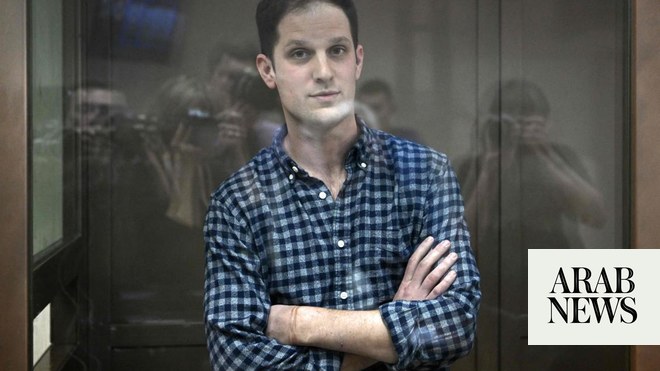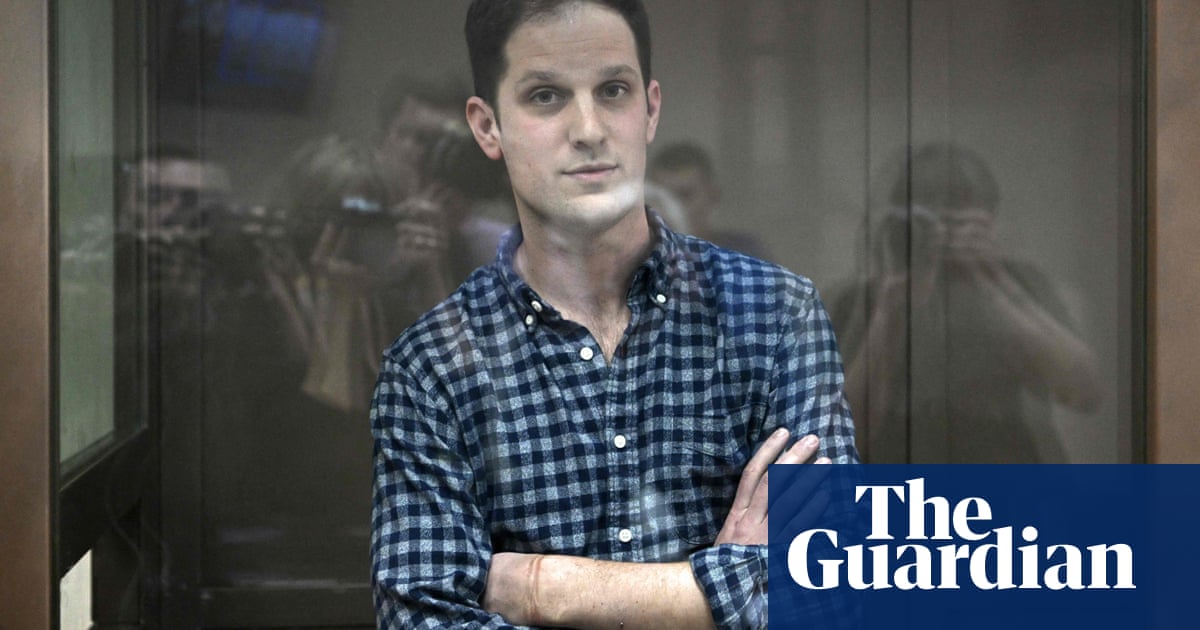
Bloomberg News said it had taken “disciplinary action” against a number of its editorial staff after the outlet “prematurely” published news of the historic prisoner swap between Russia and the United States last week that it said could have endangered the safety of the Americans being released.
In an email to staff on Monday, editor-in-chief John Micklethwait wrote that a number of staff members had been disciplined, although the company did not say who, how many or what their punishment had been. At least one reporter on the story appears to have been fired in a rare case where a journalist was punished for a decision to publish a major news story that would likely have been reviewed by senior editors at the outlet.
“Last Thursday, we prematurely published a story on the release of Evan Gershkovich and the other prisoners, which could have endangered the negotiated swap that set them free,” Micklethwait, the editor-in-chief of Bloomberg News, wrote in a letter to staff whose contents were confirmed by the Guardian. “Even if our story mercifully ended up making no difference, it was a clear violation of the editorial standards which have made this newsroom so trusted around the world.”
The news outlet published its scoop that Wall Street Journal reporter Gershkovich and a number of other American citizens were being released as part of the largest prisoner swap between Moscow and Washington since the cold war at 7.41am ET, while a plane from Moscow carrying them was still en route to Ankara for the exchange. Soon after, a Bloomberg editor wrote on X: “It is one of the greatest honors of my career to have helped break this news. I love my job and my colleagues.”
The report elicited outrage from other outlets, including the Wall Street Journal, who had been holding the news under embargo until the exchange was completed and the prisoners were safely out of Russian custody. (The editor’s tweet was later deleted.)
Micklethwait said that he had written apologies to the American hostages who had been involved in the swap, likely including Gershkovich, ex-marine Paul Whelan, and journalist Alsu Kurmasheva. As of Monday, some of those apology letters still had not been delivered. The US traded 16 American, German and Russian citizens in exchange for eight Russians, including a number of spies and a convicted assassin in German custody.
“Following a full investigation over the past few days by our Standards editor, we have today taken disciplinary action against a number of those involved and we will be reviewing our processes to ensure that failures like this don’t happen again,” he added.
In a rare case, the publication also appeared to have fired at least one of the reporters bylined on the story. Jennifer Jacobs, a White House reporter for Bloomberg News, was no longer with the company, according to reports by New York Magazine and the Washington Post. An operator at Bloomberg News told the Guardian that today was Jacobs’s last day and an email to her account prompted an autoreply: “Your Bloomberg contact has changed.” Trying to reach Jacobs, a Guardian reporter was directed to reach out to another reporter covering the White House.
In a statement posted on X, Jacobs said she did not knowingly break any embargo regarding Gershkovich’s release and said she had worked closely with editors on the story.
“As a journalist, the idea that I would jeopardize the safety of a fellow reporter is deeply upsetting on a level that’s difficult to describe,” Jacobs wrote. “I am so happy Evan Gershkovich and the others are home.”
“In reporting the story about Evan’s release, I worked hand in hand with my editors to adhere to editorial standards and guidelines,” she wrote. “At no time did I do anything that was knowingly inconsistent with the administration’s embargo or that would put anyone involved at risk.”
A spokesperson for Bloomberg News declined to comment on a list of questions about the investigation, including which senior editors had reviewed the article and whether any of them had been dismissed as well.
“Reporters don’t have the final say over when a story is published or with what headline,” Jacobs wrote. “The chain of events here could happen to any reporter tasked with reporting the news. This is why checks and balances exist within the editorial processes.”












